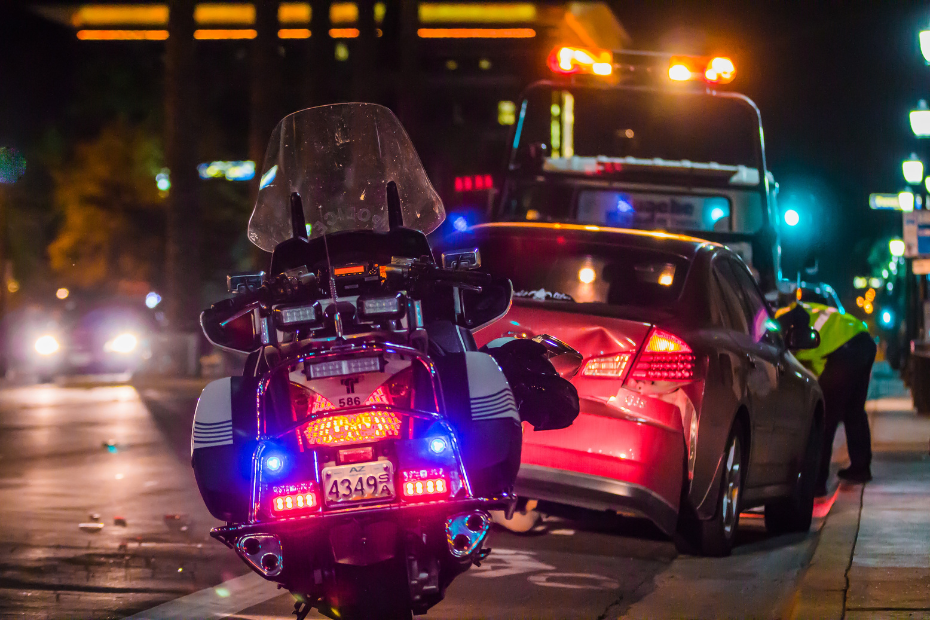What To Do After An Accident

So, you just got into an accident. For starters, don’t panic. I know that’s about as helpful as saying “don’t be depressed,” but listen for a moment. Take a long, slow breath. It’s okay if it takes a while to slow down enough. Focus on the feeling of your breath as you breathe in, long and slow. Breathe out, focusing on how it feels against your nostrils. Rub your forearms and hands, focusing on the physical sensation of your body being there, and being present.
Hopefully, this has helped you to calm down and think for a little bit. Getting into an accident can be a rough ordeal. While a fender-bender can merely be an unpleasant interruption to your day, more serious crashes can put a hamper on your whole month.
To that end, we’ve compiled a few tips for anyone who finds themselves in that situation. Please note that none of these suggestions are legal or medical advice. Everyone’s situation is different, and it would be impossible for a generalized article to give you useful medical or legal advice. Instead, we want to give you some general tips for ways to make sure your accident is as easily handled as possible—whatever you drive, whether gas-powered car or EV.
The first of these was the one we started the article with—breathe in, breathe out, and ground yourself in the present until your heart rate calms down.
Once you’ve pulled that off, it’s time to assess the situation and see what else you need to do.
First Things First: Take A Picture Of Their Plates!
A friend of mine was driving in Colorado, once. Someone rear-ended her and smashed her rear bumper and tail lights. They took the time to get out of their car and look at the damage. Then, when she asked for their insurance information, they said “nah, I don’t think so,” and drove away. Understandably panicked, she didn’t remember the license plate, and had to pay for a very expensive repair that she’s still dealing with her insurance over.
The fact is that not everyone is going to be good-hearted enough to exchange information with you. And just because they got out of their car doesn’t mean they’ll follow through. Thing is… they don’t need to give you their information. So long as you can provide your insurance company with their license plate, they can do the legwork for you.
As such, one of the first things you can do to protect yourself financially is take a picture of their plates (and them) ASAP. Make sure that you have those on hand in case they bolt!
Take Several Pictures Of The Damage And The Area!
On the off-chance that your insurance company tries to skimp on you—or the other person attempts to claim the damage wasn’t as severe as you stated, having pictures to prove your statement can be a life-saver. It’s best to take several pictures from different angles, so that they can be compared for a better idea of what, exactly, happened.
This is the same reason you want to take some pictures of the spot where it happened. You can sometimes spot signage that proves the other person was at fault, like a yield sign.
Write Down What Happened (Once You’re Safe)
Once you’re out of danger, it’s best to write down everything that happened while it’s still fresh. Stress and a day’s sleep—as well as constant retellings of the story—can blur your memory of the events and make it harder to work things out with your insurance company. As such, it’s best to write down what happened right away, so you have a record to refer to. You can edit this record as needed and write it in whatever form is most convenient for you—a notebook, or even a text to a trusted friend. Pay attention to small details—nearby signage, and weather. You never know what’ll come in handy.
What To Do If You Have An Accident in an EV
EV drivers should proceed exactly as they would if involved in a collision or accident in a conventional car. Call the police, if required (and/or other emergency services if needed), exchange insurance details with other parties, take photos of the scene, and either wait for the authorities to arrive, or continue safely on your journey (if it is a minor incident).
To prevent additional hazards, however, we recommend taking some additional precautions —
- Inform all emergency responders that the vehicle is electric
- Assume the vehicle is fully powered—do not touch the engine compartment, battery, or any exposed electrical components/
- Maintain a safe distance from any electric vehicle that has suffered extensive damage
Finally: Call Your Insurance!
We’ll leave you with this: insurance companies love finding ways to wheedle out of paying their dues. As such, you don’t want them asking why it took you so long to get into contact. You don’t need to give them much detail. Let them know what happened, that it wasn’t your fault, and that you’re going to get the damage assessed soon. If you’re lucky, they’ll even direct you to a good place.
Hopefully, the above gives you a good starting point to relieve some of the stress of a bad situation!
Bạn cần đăng nhập để tương tác với nội dung này: Đăng nhập.


